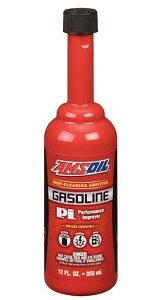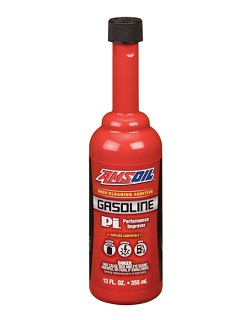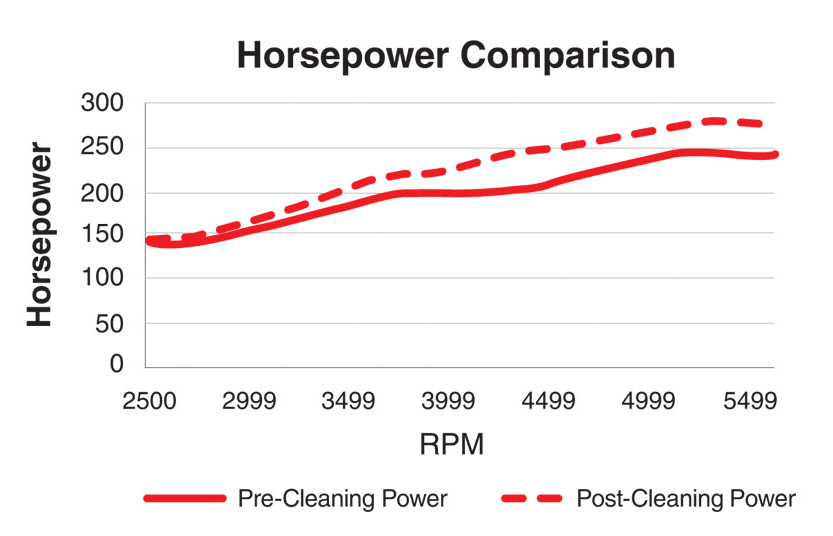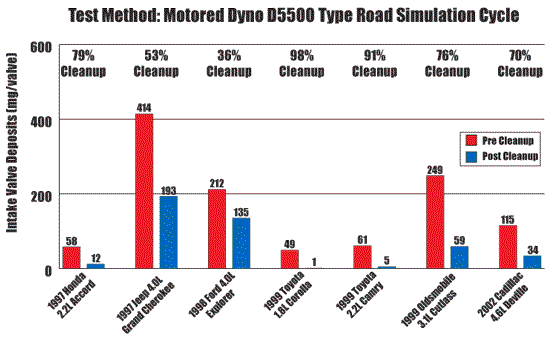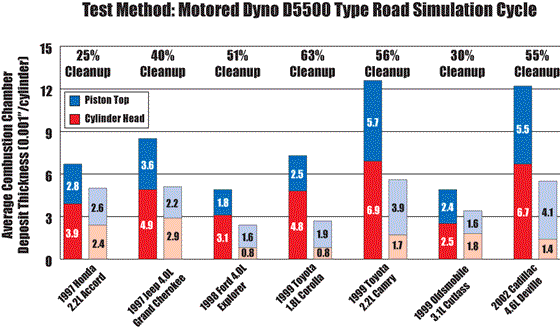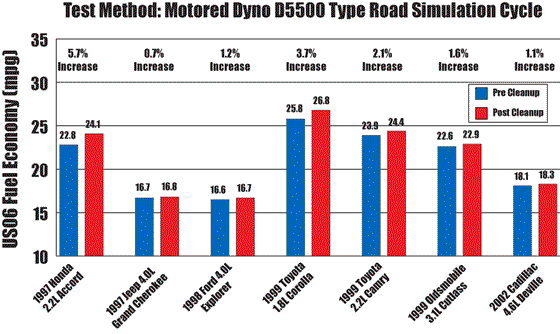
The only Gas additive you need to know! Thus it's in our top three best selling items! Could you use a potential 14% Increase in horsepower?
AMSOIL’s PI Performance Improver Gas Additive
It’s one of our best selling items forever!
AMSOIL P.i. is a potent gasoline performance improver with concentrated detergent that aggressively cleans stubborn, power-robbing deposits from injectors, valves and the combustion chamber. Effective in port and direct injection systems. Bottle compatible with capless fuel systems. Cleans entire fuel system in one tank of gasoline. For use with cars and trucks. Treats up to 30 gallons. Add entire bottle to tank at fill-up. For best results, clean your fuel system with P.i. every 4,000 miles (6,400 km). Do not use with diesel, E85 or 2-stroke mixed fuel.
Untreated Fuel Leads to Poor Engine Performance
A vehicle demonstrates its best efficiency and engine performance when it is new. As the engine ages, its performance suffers from gasoline fuel-generated deposits that form on the fuel injectors, intake valves and combustion chamber. Additives are required to control deposit formation.
Today’s fuels, however, lack sufficient treatments of either enough additives or high quality additives. At a recent fuel seminar it was said most pump gas available only has the minimum required injector cleaner which is based on a 1985 standard.
• Restores up to 14% horsepower
• Reduces need for costly higher octane fuel
• Reduces noise from carbon rap and pre-ignition
• Controls pre-ignition “knock”
• Improves fuel economy
• Capless compatible
Treated Fuel Delivers Maximum Performance
Most new engines feature gasoline direct-injection (GDI) to boost power and improve fuel economy. These injectors are located inside the intense heat and pressure environment of the combustion chamber, making them particularly vulnerable to deposits. Extreme pressure combined with incomplete fuel combustion can lead to dramatically increased soot (particulate matter) levels. Direct injection typically creates 30 to 40 times more soot than port fuel injectors (PFI). Even a minimal amount of injector fouling can lead to increased pollution and wear
and decreased power and fuel economy.
Unsurpassed Deposit Clean-up
Injector deposits:
• Decrease Efficiency, power and fuel economy
• Increase exhaust emissions
• Contribute to poor starting and rough idle
P.i. removes stubborn deposits and keeps injectors
functioning as they should. Testing shows P.i. restored GDI fuel injectors to a 100% flow rate after one tank of fuel.
Port Fuel Injector Deposits form after the engine has been shut down and there is no gasoline flowing through the injectors. During this hot soak period the injectors heat up and the gasoline remaining in the injectors degrades and forms deposits. This can happen very quickly with the use of poor quality gasoline and short trip driving. Because the clearances within the injectors are extremely tight and injectors must deliver precise amounts of atomized fuel, even small amounts of deposits can cause injectors to malfunction. Fuel flow is reduced and spray patterns are disrupted, decreasing engine efficiency, power and fuel economy, while increasing exhaust emissions.
Intake Valve Deposits form on the intake side or back side of the valves. As deposits increase, they restrict airflow and alter airflow patterns in the cylinder. The deposits disrupt the balanced air/fuel ratio by momentarily absorbing and releasing fuel, and they can cause valve sticking by getting in the way of the valve stem and guide. Deposits also restrict proper seating, and the valves may be burned. Intake valve deposits cause lost engine power, increased emissions, poor engine efficiency and potential valve failure.
Combustion Chamber Deposits form on the top of the pistons and on the cylinder heads. They increase compression and absorb heat during combustion to later release it during the intake cycle. In some engines with tight squish domes, combustion chamber deposits cause the piston to actually hit the cylinder head. This is referred to as combustion chamber deposit interference or carbon rap. Combustion chamber deposits also flake off as they get large, and these flakes can get trapped between the valves and valve seat, resulting in compression loss, difficult starting and rough idle.
Higher compression and stored heat cause increased intake fresh charge temperatures and the increased likelihood of pre-ignition knock or pinging when the fuel spontaneously combusts prior to spark ignition. This increases emissions and may cause engine damage. Many of today’s cars have knock sensors that adjust spark timing to prevent knock.
Although audible knock is controlled, power is lost from retarded timing. Higher octane fuels of 4-5 octane numbers can be used to help prevent knock, an effect called octane requirement increase. As a vehicle ages, more-expensive, higher-octane fuel is needed to keep it operating at peak performance. By cleaning combustion chamber deposits, knock is controlled, power is restored, fuel economy increases and higher-octane fuels are less necessary for peak performance.
Maximum Fuel Economy
AMSOIL P.i. maximizes fuel efficiency by dissolving and removing fuel system deposits and other contaminants for improved power and overall performance.
Recommendations
• For use in gasoline powered cars and trucks.
• Treats up to 30 gallons. Use one bottle for entire fill-up.
• For best results, clean your fuel system with P.i. every
4,000 miles.
• For large gas tanks, treat with two bottles of P.i. Using more
than two bottles per treatment is not recommended.
• Safe for use with catalytic converters, oxygen sensors,
oxygenated gas and up to 15% ethanol blended gas.
• Do not use with diesel or E85 fuel or two-stroke engines. In fact don’t use E85 at all!
DANGER: Combustible. Harmful or fatal if swallowed. Harmful if inhaled. Skin and eye irritant. Read precautions on container before use.
